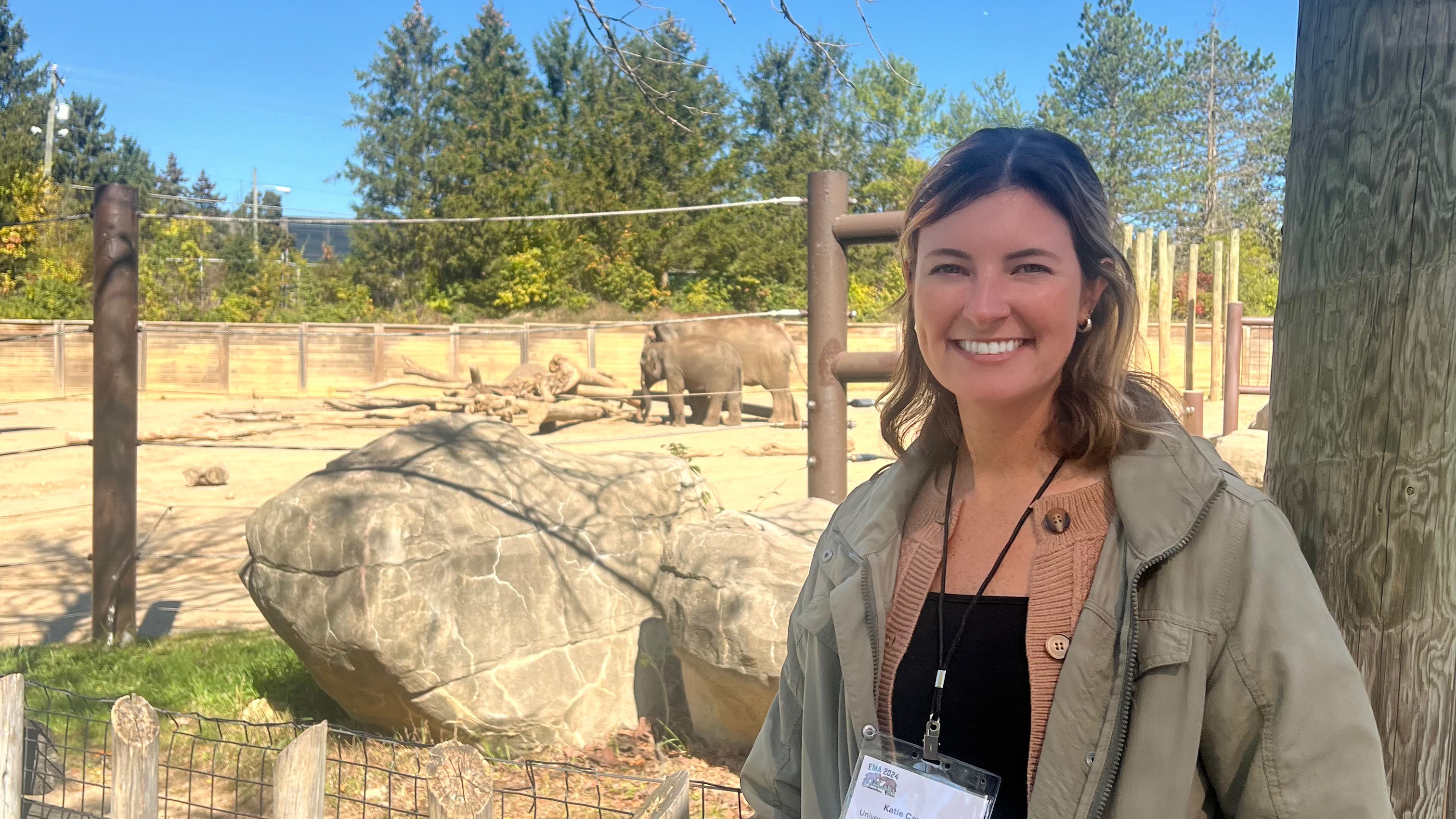
By Ronica Stromberg
Nebraska is a hot spot for elephant research, and Katie Campbell knows it.
The Illinois native came to Nebraska in 2018 to study elephants as a master's student at University of Nebraska-Omaha. Now a doctoral student at the University of Nebraska-Lincoln, Campbell recently won a Meritorious Graduate Student Award from the School of Natural Resources for her many accomplishments, including leading research on the reproductive health of African male elephants.
Still, anyone unaware of Nebraska as a luminary of loxodonta research shouldn't feel alone.
"It's just such a crazy concept to a lot of people that Nebraska is where you go to study elephants," Campbell said.
She points out, though, that Omaha is headquarters for the For Elephants organization that partly supports her research and that her coadvisor, Kari Morfeld, runs. The state also has 10 elephants at Omaha's Henry Doorly Zoo and Aquarium, although Campbell hasn't included them in her research because five are females and the others are juveniles.
Instead, Campbell has been studying 18 male elephants, called bulls, at zoos across the country. Like other wild animals, elephants breed less successfully in captivity than in the wild. Although past researchers have looked at and addressed reproductive issues of female elephants, few cast a sideways glance at the males.
Campbell learned at the outset of her doctoral project that of the 41 African bulls then in captivity in the United States, only seven had offspring. One bull sired 18 babies in the population, and another sired nine. Knowing that zoos are viewed in conservation as potential gene pools for suffering wild animal populations, Campbell saw a potential problem.
"When I started this, it was kind of amazing to see that there have been so few sires and a lot of the offspring are half-siblings," she said. “Thinking about the future, that's going to cause a big issue with genetics, which is not what we want to do in conservation."
Read the complete story and see more images of Katie and the elephants at https://snr.unl.edu/aboutus/what/newstory.aspx?fid=1252